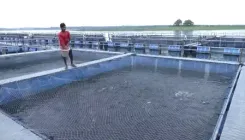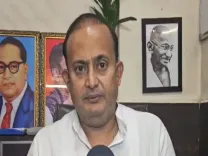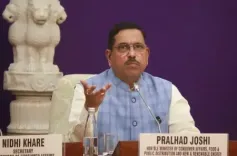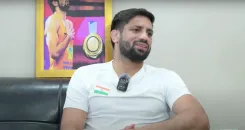How is Gujarat Modernizing Libraries for Digital Access?
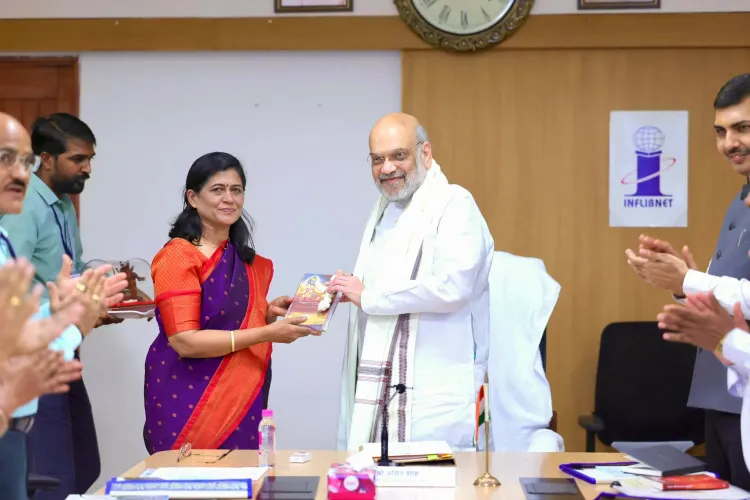
Synopsis
Key Takeaways
- Modernization of libraries is crucial for accessibility.
- Digital integration with INFLIBNET enhances resource availability.
- Promotion of reading habits among youth is essential.
- Linking libraries creates a unified digital network.
- Preservation of rare texts is a priority.
Ahmedabad, June 27 (NationPress) Union Home and Cooperation Minister Amit Shah visited the Information and Library Network (INFLIBNET) Centre in Gandhinagar on Friday where he assessed the institution’s operations and provided key recommendations to enhance its accessibility and effectiveness.
During his visit, HM Shah also introduced the mobile application of Sastu Sahitya Vardhak Karyalaya. Identifying himself as "a child of the library," HM Shah emphasized the significant role libraries play in shaping young minds and their essential contribution to nation-building.
He highlighted the necessity of making library services more accessible for both students and citizens. Additionally, he advocated for the modernization of public libraries within the Gandhinagar Lok Sabha constituency through enhanced digital connectivity and integration with INFLIBNET’s extensive online resources. Amit Shah lauded the Centre’s proposed e-Public Library model and toured its Data Centre, suggesting further expansion and outreach efforts.
The Union Minister called upon INFLIBNET to actively promote its digital services to ensure that more libraries and students nationwide can reap the benefits. He also recommended linking all public libraries in Gujarat with the INFLIBNET portal to establish a unified digital library network.
Moreover, he stressed the importance of digitizing and preserving rare texts found in traditional libraries and encouraged initiatives to cultivate reading habits among the youth.
The INFLIBNET Centre, established by the University Grants Commission (UGC) under the Ministry of Education in 1991, aims to drive digital transformation in university libraries throughout India.
It provides researchers and students with access to a broad range of academic resources. The visit included officials from the Department of Sports, Youth and Cultural Activities, librarians from the Gandhinagar constituency, and senior scientists and directors from INFLIBNET.
Gujarat’s public library system is both extensive and evolving. State data indicates there are 3,464 government public libraries, featuring a state central facility and 26 district-level libraries, along with 3,168 grassroots branches. In addition to the public sector, the Advance Information Network of Libraries in Gujarat (ADINET) connects nearly 2,000 libraries, spanning school, college, institutional, and public libraries across the state.
Among prominent institutions in major cities, Surat’s Kavi Narmad Central Library houses over 287,000 books, featuring a dedicated children’s section and Braille collection, serving more than 36,000 registered users. In Ahmedabad, the historical M. J. Library, established in 1938 with Mahatma Gandhi’s support, continues to serve as a vibrant public space.
Vadodara’s Central Library, with approximately 290,000 volumes, is another key resource. The state government initiated the modernization of these libraries in the early 2000s under the Gujarat Public Libraries Act (2001), implementing computerization, including RFID-enabled central and district libraries, and connecting them through the SOUL software under INFLIBNET’s guidance.

